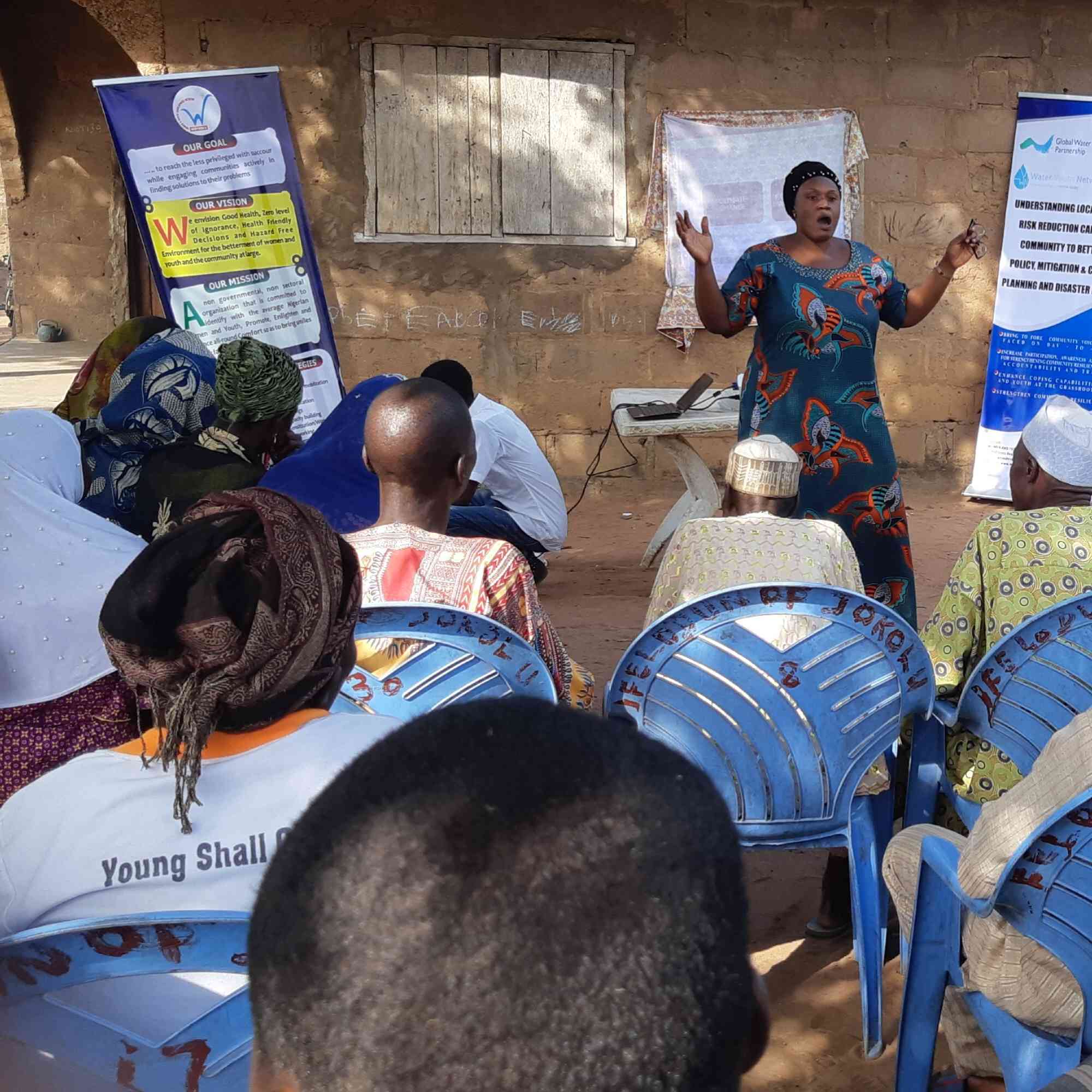Enhancing Access to Resilience& Community Adaptation in North Central Nigeria
Building Resilience of Women and Youth in Disaster Risk Reduction to Enhance Community Based Adaptation (CBA) for sustained rural livelihood
Description
Women Environment Youth Development (WOYODEV) Initiative is a non governmental, non sectoral organization formed to help in the all round development of Women and Youth which constitutes a larger part of the population of the world. The creation of the organisation was informed out of the passion and general concern about the dwindling reality of gender parity, women and youth economic empowerment in Nigeria and continued exposure to environmental hazards.
WOYODEV particularly focuses on awareness creation and advocacy for gender equality, promotion of children and women’s rights, indigenous knowledge skills transfer, Water sanitation &Disaster Risk Reduction.
As an organisation, we adopt various strategies to inform, empower and mobilize the entire populace with particular attention to the rural areas which are marginalized by the society. We adopt the participatory, development and evaluation approaches in achieving our goals.
Our Motto is attaining greater heights for women and youths in a conducive environment
Our Goal is to reach the less privileged with succour while engaging communities actively in finding solutions to their problems
Our Vision: We envision Good Health, Zero level of Ignorance, Health Friendly Decisions and Hazard Free Environment for the betterment of Women, Youth and the community at large.
In fulfilment of our corporate goal, mission and objectives as an organisation, we commit to contribute to the Sendai Framework for Disaster Risk Reduction by engaging our target groups (women and youth) to enhance their coping capacity for increased protection against hazards, reinforcing sustainable livelihood and to alleviate sufferings at the grassroots level. We did these via skills transfer on Agro-ecology, sustainable farming techniques, Rain water harvesting amongst other direct program interventions. We also build their capacities on citizen engagement to demand Government accountability while together we work to demand women and youth inclusion in Disaster Risk Reduction/ Management contingency planning at all levels.
Did the Sendai Framework change or contribute to changes in your activities/organization? If so, how?
The Sendai Framework has, to a large extent contributed to changes in our activities. With available Sendai Framework tools we have been able to better engage, work with communities to achieve desired goals and contribute to regional Programme of Action and commitments.
What led you to make this commitment/initiative?
What was your position before making this Voluntary Commitment / prior to the Sendai Framework?
We made this commitment and engaged in the program initiative so as to be part of sustainable efforts globally, contribute local resilience and reduce hazards being faced by women and youth at the community level on daily basis.
Additional motivation was found in the fact that the Sendai Framework encourages the empowerment of local actors (with resources, incentives, decision making responsibilities, etc.). Furthermore, the Sendai Framework states that to understand disaster risk at the national and local levels, enhanced collaboration and involvement of community-based organizations and non-government organizations is needed to disseminate information as we are the closest to communities and are readily on ground.
Deliverables and Progress report
Deliverables
Deliverables are the end-products of the initiative/commitment, which can include issuance of publications or knowledge products, outcomes of workshops, training programs, videos, links, photographs, etc.
This is a report that presents the progress made, challenges encountered and recommendations as a result of implementing the commitment for the period 2017-2018. The capacity building project focused on women and young people and had as main topics sustainable agricultural practices as well as resilience building. The project was conducted in the Jokolu community, Moro LGA, Kwara State, Nigeria. Around 3 community sessions were conducted and it is estimated that 1,000 people benefited directly and many more indirectly.
Strategies used were Focus group discussions, presentation by facilitator and hands-on-training.
Organizations and focal points
Implementing Organization(s)
Focal points
Partners
